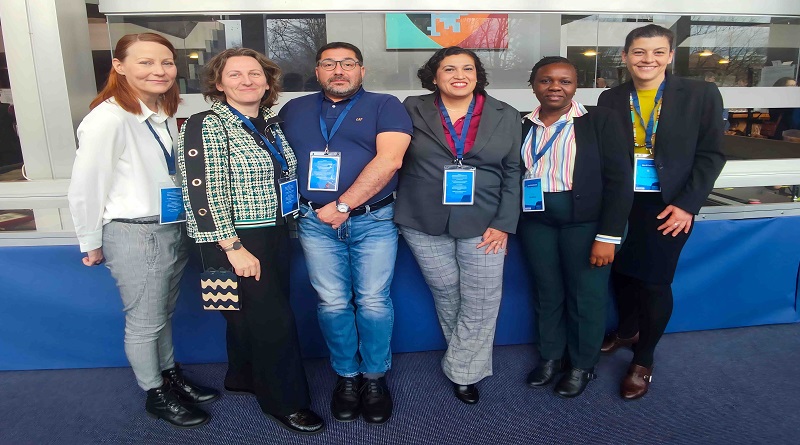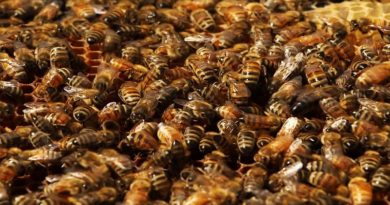Chemicals, waste conventions critical to addressing planetary crisis, says Minamata Convention chief
Photo caption: From left to right: Tuulia Toikka (Finland), Monika Stankiewicz (Executive Secretary, Minamata Convention), Osvaldo Patricio Álvarez Pérez (Chile), Ana Cristina Soares Linhares (Brazil), Anne Nakafeero (Uganda), Manoela Pessoa de Miranda (Minamata Convention) during the Bern III Conference on cooperation among the biodiversity-related conventions for the implementation of the Kunming-Montreal Global Biodiversity Framework, which took place from 23 to 25 January 2024 in Bern, Switzerland.
Executive Secretary, Minamata Convention on Mercury, Monika Stankiewicz, has emphasized the important role that the chemicals and waste conventions play to enhance coherence among multi-lateral environmental agreements in addressing the triple planetary crisis of pollution, biodiversity loss and climate change.
The Minamata Convention chief stated this during the Bern III Conference on cooperation among the biodiversity-related conventions for the implementation of the Kunming-Montreal Global Biodiversity Framework, which took place from 23 to 25 January 2024 in Bern, Switzerland. The Conference was organized by the government of Switzerland and UNEP.
Speaking at the Conference, Ms Stankiewicz, drew attention to the Conference of the Parties’ decision MC-5/17 and emphasized the important role that the chemicals and waste conventions play to enhance coherence among multi-lateral environmental agreements in addressing the triple planetary crisis of pollution, biodiversity loss and climate change.
Ms. Stankiewicz, addressing the gathering, stated: “The chemicals and waste cluster plays a pivotal role in advancing the goals and targets of the Global Biodiversity Framework. By including the Minamata Convention in the Bern process, we contribute to a more cohesive and synergistic approach to address global challenges”.
On the last day of the Bern III Conference, Manoela Pessoa de Miranda, from the Secretariat of the Minamata Convention, facilitated a deep-dive discussion on the engagement of key stakeholders. At its conclusion, she underlined that “the inclusive and meaningful participation of Indigenous Peoples, local communities, women, and youth is crucial to ensure the whole-of-society approach and human-rights based approach in the implementation of the Global Biodiversity Framework as well as to enhance political will towards achieving the shared biodiversity goals”.
To further underscore the relevance and contribution of the Minamata Convention to global biodiversity targets, the Secretariat launched this week a publication titled “Mercury and Biodiversity – Opportunities for generating co-benefits through coherent implementation of the Minamata Convention on Mercury and the Kunming-Montreal Global Biodiversity Framework”.




